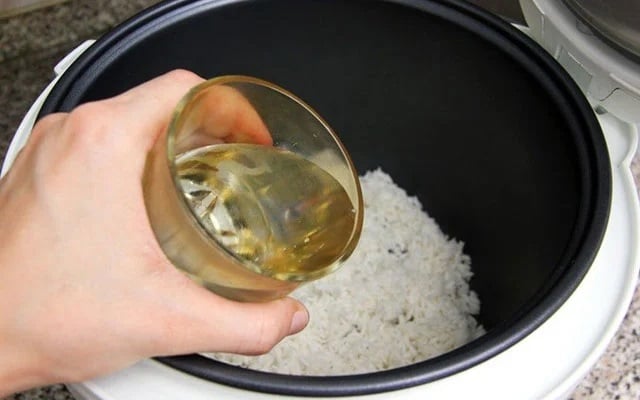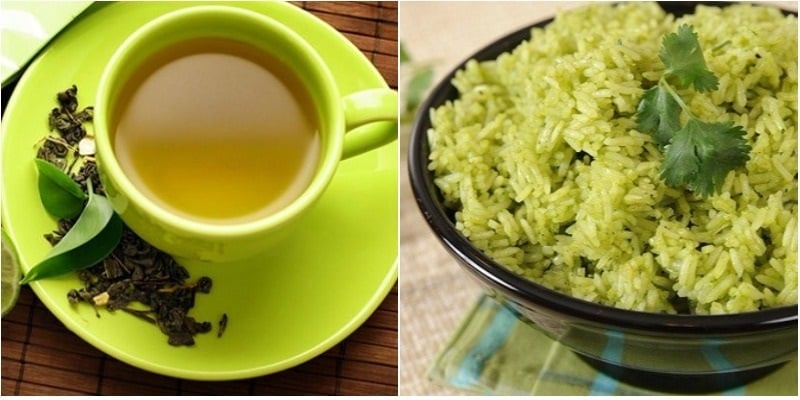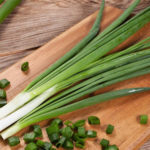Eat Rice Cooked with This Water to Improve Your Heart Health
Traditionally, we use filtered water to rinse and cook rice. However, there is another way to cook rice that is highly nutritious and recommended: cooking rice with green tea water.

Instead of using filtered water to cook rice, use green tea water.
According to the ancient Chinese medical book “Ben Cao Shi Di,” “Consuming tea for an extended period can make the body slim and healthy.” During the Tang Dynasty, rice cooked with tea water was also highly praised for its health benefits, indicating that cooking rice with tea water has been a folk custom passed down for thousands of years in China, with significance in Traditional Chinese Medicine.
Cooking rice with tea water is a method to improve cardiovascular health. The reason is that green tea water contains 70-80% polyphenol extract, and studies have shown that polyphenols in tea can enhance the resilience of micro-blood vessels, preventing capillary breakage and bleeding. Moreover, polyphenols can reduce blood cholesterol and inhibit atherosclerosis. Middle-aged and elderly individuals who regularly eat rice cooked with tea water can soften blood vessels, lower blood lipid levels, and prevent cardiovascular diseases.
Benefits of Using Tea Water to Cook Rice
1. Prevent and Treat Cardiovascular Diseases
Green tea water removes oiliness, cleanses the mouth, facilitates digestion, and promotes easy absorption of nutrients. Additionally, green tea water contains 70-80% polyphenol extract, which studies have shown can enhance the resilience of micro-blood vessels, preventing capillary breakage and bleeding.
Furthermore, polyphenols can reduce blood cholesterol and inhibit atherosclerosis. Middle-aged and elderly individuals who regularly eat rice cooked with tea water can soften blood vessels, lower lipid levels, and prevent cardiovascular diseases.

Cooking rice with tea water has many health benefits.
2. Prevent Gastrointestinal Cancer
Foods contain a significant amount of amines and nitrites, which can easily produce cancer-causing nitrosamines. Polyphenols in tea can inhibit the synthesis of nitrosamines in the human body, thereby achieving the goal of preventing and treating gastrointestinal cancers.
3. Prevent Stroke and Anti-Aging
Tannic acid in tea and rice is a type of polyphenol that can inhibit the formation of oxidized lipids and eliminate active enzymes, resulting in elastic blood vessels, preventing the risk of stroke, and anti-aging.
4. Protect Teeth and Prevent Cavities
Fluoride in tea has a whitening and cleansing effect on teeth. Cooking rice with a certain amount of tea water can enhance the toughness and acid resistance of teeth, preventing the occurrence of cavities.
5. Aid in Digestion
Tea water can dissolve fat in food, and phenol in tea water helps promote the production of digestive enzymes. Therefore, those suffering from indigestion can cook rice with green tea to improve digestion.
6. Reduce Blood Sugar Levels
Polysaccharides in tea can reduce gluconeogenesis and glycogen production by enhancing the body’s antioxidant function, strengthening the liver’s glucokinase enzyme activity, thereby reducing fasting blood sugar levels.
7. Rice Cooked with Tea Water Lowers Blood Fat
Rice cooked with tea is rich in statins, which have anti-lipid peroxidation effects, reducing levels of low-density lipoprotein, bad cholesterol, and triglycerides in human blood, effectively lowering blood fat levels.
Note:
– Do not let tea leaves get into the rice.
– Do not use too much tea when cooking rice.
– Do not use overnight tea water to cook rice.
– When eating rice cooked with tea, consume it with foods high in protein and iron.
Additionally, there are other tips for cooking delicious and fluffy rice:
Add Salt to Rice
Adding a pinch of salt to rice can keep it fresh longer. Even in hot weather, salt can preserve rice without the need for refrigeration. Another advantage is that when reheating cold rice, adding some salt water can eliminate any stale flavors.
Add Cooking Oil to Rice
During the rice cooking process, you can also add a few drops of oil or animal fat to the rice. Adding a little oil to the rice not only makes it fragrant, fluffy, and soft, but also ensures that the pot does not burn.
Add Vinegar to Rice
It may sound strange, but adding vinegar to rice will make it whiter and less susceptible to spoilage and sourness. Therefore, if you want your rice to be whiter and last longer, add 2-3 ml of vinegar or lemon juice per 1.5 kg of rice when cooking.





































